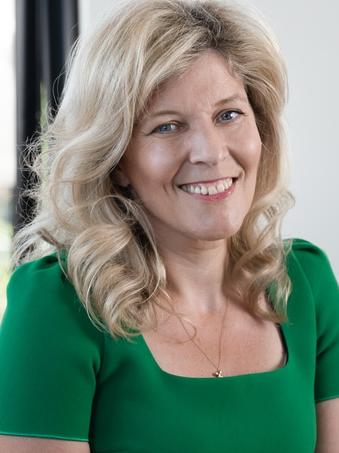Anti-cancer drugs added to Pharmaceutical Benefits Scheme
A Melbourne-developed anti-cancer drug, which “melts” the disease away, is among the medications in a $200 million treatment lifeline which will benefit thousands of patients.
VIC News
Don't miss out on the headlines from VIC News. Followed categories will be added to My News.
An anti-cancer drug, developed in Melbourne, which “melts” the disease away is among a $200 million treatment lifeline to benefit thousands of patients.
The two drugs which helped save Jarryd Roughead will be made cheaper for people battling kidney cancer, as part of a federal government boost, alongside a new drug for bladder cancer.
The costs of the treatments will drop from about $250,000 for a course to as little as $40 a script or just $6.50 on concession.
PRECISION MEDICINE A REALITY FOR KIDS WITH CANCER
RARE LUNG CANCER DRUG ON THE PBS
YOUNG CANCER PATIENTS FUTURE-PROOFING FERTILITY
Prime Minister Scott Morrison told the Sunday Herald Sun that a record amount of money was being invested in new medicines.
“Our strong economic management means we can provide Australian patients with access to lifesaving and life-changing medicines quicker than ever before,” Mr Morrison said.

Several of the drugs being added to the Pharmaceutical Benefits Scheme are already subsidised for other cancers. Combination immunotherapy drugs Yervoy and Opdivo will be added for an advanced form of kidney cancer and Keytruda, which prevents cancer cells hiding from the immune system, is being listed for the most common type of bladder cancer.
More than 600 people each year suffering advanced liver cancer will have cheap access to daily capsules of Lenvima, which usually cost $62,000 for a course.
Anti-cancer tablet Venetoclax — which overrides a key protein that helps cancer cells survive and “melts” them away — will be available for about 420 patients who have relapsed or untreatable chronic lymphocytic leukaemia.
Venetoclax was developed following a discovery at Melbourne’s Walter and Eliza Hall Institute of Medical Research 30 years ago.
Head of clinical translation and Royal Melbourne Hospital haematologist Professor Andrew Roberts said clinical trials showed Venetoclax, used in combination with injection drug Rituximab, had shrunk lymph node lumps and controlled cancer in 90 per cent of patients.

MEDICINE THAT SAVED DEBORAH
Deborah Sims was diagnosed in 2011 with chronic lymphocytic leukaemia and told she had as few as 12 months to live.
But after spending $700,000 on a lifesaving global journey — travelling to London 20 times in just two years — the 45-year-old Melbourne mum has the all clear from doctors.
And it’s all thanks to a drug developed in her home city. “I’ve gone from having months to live, to my latest tests that tell me I’m in complete remission,” Ms Sims said.
She underwent three cycles of chemotherapy which put her cancer into remission but it returned six months later. A risky bone marrow transplant was proposed by doctors.
Then Ms Sims heard about a promising drug ABT-199, designed in Melbourne.
She couldn’t access US trials but signed up for a London-based trial after a chance meeting at a medical conference with the doctor leading it. Within six months of taking ABT-199, later renamed Venetoclax, she was given the all clear.


